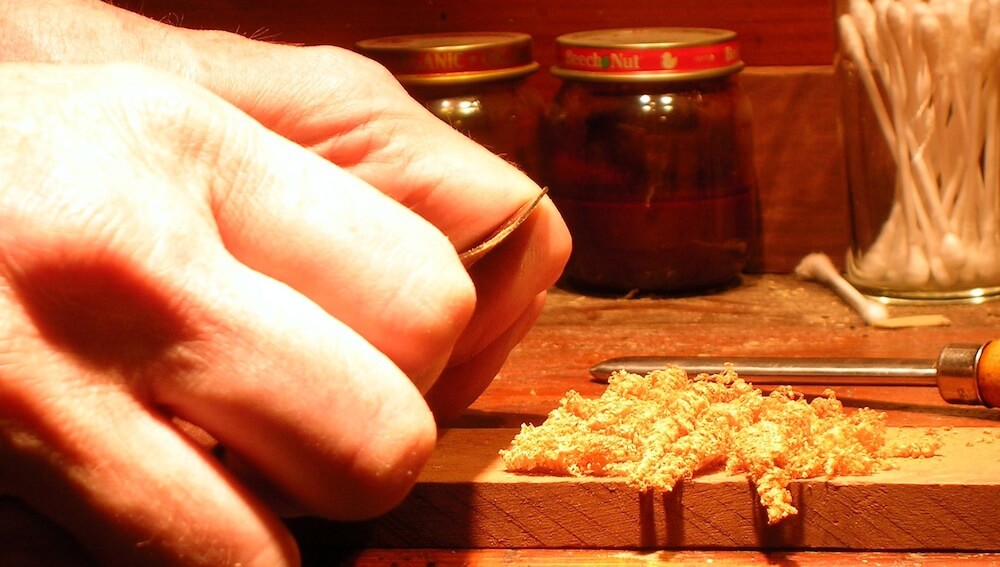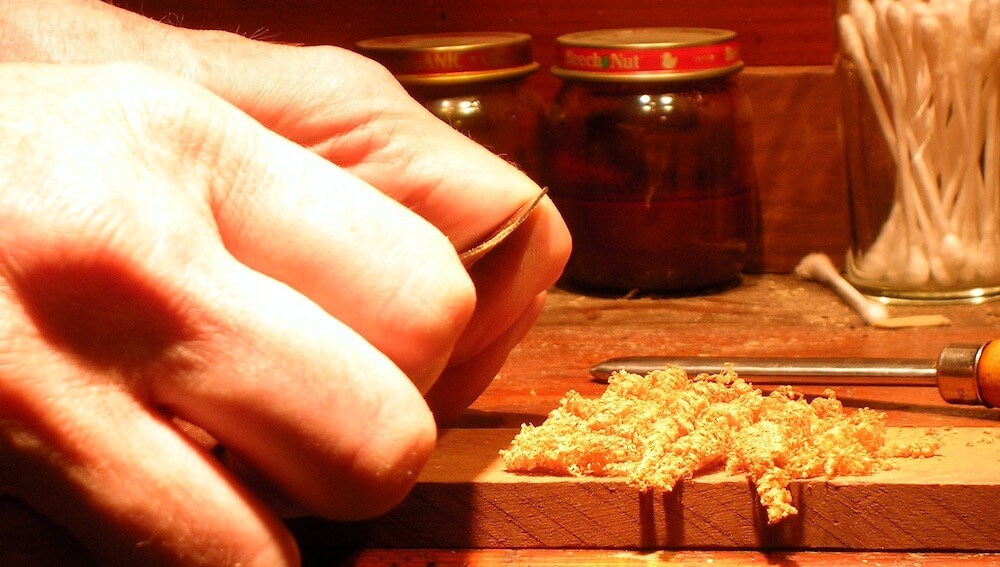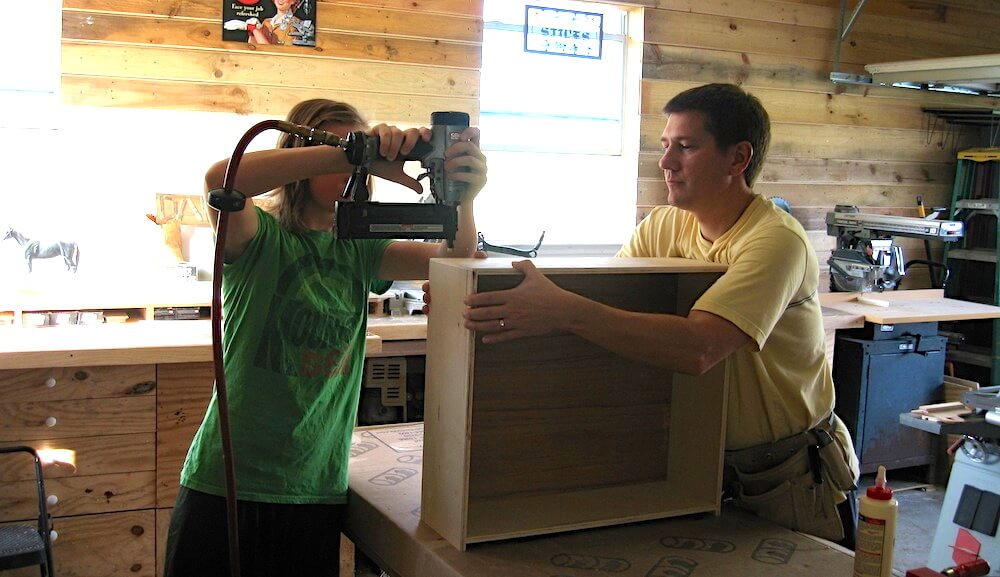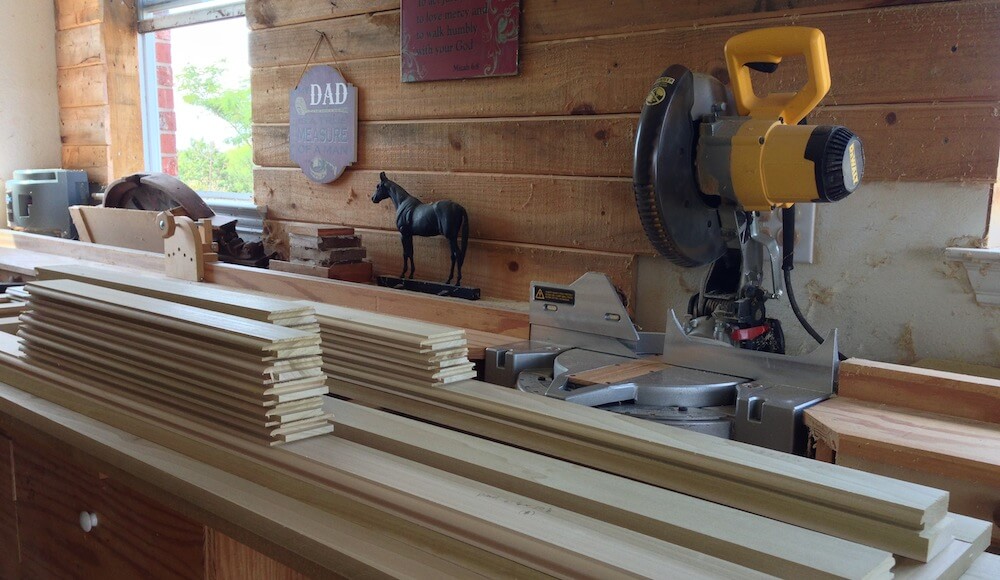4 min read
10 Ways Woodworking Affirms Your Spiritual Life (Part 2)
Admin
:
Aug 29, 2013 11:01:24 PM

Years ago my wife bought me a table saw for Christmas, and I’ve enjoyed the first hobby I’ve had in my life. I like what the Canadian born physician, Sir William Osler, once told an audience of medical professionals:
No man is really happy or safe without a hobby, and it makes precious little difference what the outside interest may be—botany, beetles or butterflies; roses, tulips or irises; fishing, mountaineering or antiques—anything will do as long as he straddles a hobby and rides it hard.

(Photo: by Just plain Bill. Own work, CC-BY-SA-3.0-2.5-2.0-1.0, via Wikimedia Commons)
But woodworking is more than a hobby. It has marvelous metaphors for your spiritual life.
In an earlier post, I shared the first half of 10 ways I’ve discovered that woodworking affirms your spiritual life:
- You will have to cut cross grain, so stay sharp.
- Good tools save you time and give you better results.
- You can do a lot more than you think with the little you have.
- Following a plan gets you where you want to go with greater success.
- Mistakes always teach you, and they rarely ruin the piece.
In this post, let’s complete the list it’s taken me years to write.
What would you add to the list?
Here are 5 more ways woodworking affirms your spiritual life.
6. It’s essential to have a standard by which to measure.
An inch is an inch, and it will always be an inch. I’m not sure where the original ruler is, but all tape measures today are based on that standard. In fact, they are all perfect to the degree that they reflect the original. An inch measures the same in Texas as it does in Massachusetts.

(Photo: by Louise Docker, Measuring time. CC-BY-2.0, via Wikimedia Commons)
We refer to the books of the Bible as the “canon.”
- It’s a word from the Hebrew term, qaneh, which means a “reed” used as a standard of measure (Ezekiel 42:16).
- The early Christian church referred to books of the Bible as canonical.
The Word of God is our standard. It is our measuring tape that says an inch is an inch. And it makes it clear when we do and don’t measure up to God’s standard (Romans 3:23).
Frequently I have to check the measuring tape on my table saw to make sure it is dead-on accurate. Why? Because repeated cuts with an inaccurate measure will eventually yield a project that’s way off. The same is true of our lives.
The Word of God is perfect—and so are our copies of the Bible to the degree that they reflect the original manuscripts. When we measure our lives and decisions based on the unchanging standard of truth, our lives head in the right direction. But even a slight deviation can lead us down the wrong path.

(Photo: Putting together a drawer.)
7. Anticipating imperfect conditions frees you to enjoy the experience.
I’ve installed built-in cabinets and crown molding in our home. Much to my disappointment, I’ve discovered that “the perfectly square corner” doesn’t exist. The framers got it close—and you can’t tell by eye—but nothing is perfect. When I began to allow for that, my work wasn’t as frustrating. And you know what? The results were just fine.
Very little in life is square.
- If you don’t allow for imperfections in your family, in your friends, and in your job, you’ll drive yourself nuts with “how it ought to be.”
- The sooner we quit looking for this life to be the perfect place (according to our own standard), the sooner we free ourselves to enjoy life and to extend grace and forgiveness to others.
After all, we accept our own imperfections, don’t we? What’s more, God accepts us as we are in Christ. We should extend that same grace to others (Ephesians 4:32).

(Photo: Preparing rails and stiles for doors)
8. Staying safe requires a constant awareness of what can hurt you.
Recently I shook hands with a man who had no thumb. It felt really strange. When I asked him about it, he had two words: “Table saw.” A chill went up my back.
I’m happy to say I still have all ten digits and both of my eyeballs. That’s because I have a healthy respect for what can hurt me.
- I plan my work and I don’t make cuts if I’m not sure I can’t make them safely. More than once before making a cut, I’ve turned off the saw and said, “Nope. It’s just not worth the risk.”
- I wear safety glasses. (Thanks, Norm Abram.)
- I usually pray for safety each time I begin working in the shop.
Are you aware of what can hurt you spiritually?
- When you’re in temptation, you need to walk away, knowing the sin is just not worth it (Galatians 6:7-8).
- Remember that you have an enemy and you are in a war. Satan wants to destroy your life and your witness. “Be on the alert,” Peter urges us. “Your adversary, the devil, prowls around like a roaring lion, seeking someone to devour” (1 Peter 5:8).
- The Lord has provided “the full armor of God” for us to put on each day (Ephesians 6:11, 13).

(Photo: A dovetail drawer on a recent project)
9. Nothing reveals character like stress.
Wood has personality. But it’s often hidden until you cut it, bend it, or stress it. Many times I’ve made cuts on the band saw or table saw and the wood instantly cupped, curled, split, or warped. I never would have known it until I cut it.
I’ve discovered that people can look really good, stable, and godly until life offers its challenges.
- Short tempers, worry, panic, and bitter spirits reveal that the surface we show isn’t what’s in our hearts.
- When stress reveals the flaws in your character, see these incidents as God’s way of graciously showing you who you really are—so that you see your need to obey a God who can fashion you into a masterpiece.
Also, in the same way we have to let green wood cure for a good year (or it will warp when you use it), young leaders need time to mature (1 Timothy 3:6, 10). There is no kiln that hurries up leader preparation.
10. Completing the project makes the hard work worth it.
Projects require much, much patience. As a weekend woodworker who also has a family to love, a yard to mow, bills to pay, and other home duties, my projects often take months to complete. (My roll top desk took me a year!) Most of the time I go to the shop, I begin by cleaning away spider webs.
Looking at a plan, you can see where you’re going and what the project will look like when it’s done. In fact, an anticipation for the project’s completion keeps you going in spite of mistakes and delays.
In the spiritual life, the plan is in the Bible and our prototype is Jesus.
- He is what we strive to become—and His return for us is THE “blessed hope” that urges us to keep going (Titus 2:13; Hebrews 12:2).
- We need to keep the end in mind. When the project is completed, it will all be worth it (Romans 8:18).
Like woodworking, the spiritual life is a skill and an art, not a science. The longer you do it, the better you get.
Tell me what you think: Can you think of other ways woodworking relates to the spiritual life? To leave a comment, just click here.
Click here to leave a comment.
-1.png?width=5230&height=1198&name=unnamed%20(4)-1.png)

.jpg?width=350&name=Wayne-books-350wide%20(1).jpg)




